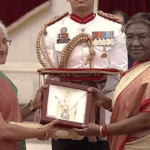Introduction:
Close your eyes and imagine a place where vibrant colors dance before you, intoxicating fragrances fill the air, and the cacophony of vendors merges with the gentle whispers of windblown petals. Welcome to the world of Indian flower markets, a sensory and cultural feast waiting to be explored.
A Heritage Steeped in Tradition:
The history of Indian flower markets stretches back centuries, intertwining with the nation’s rich cultural tapestry. In ancient times, flowers adorned temples and offerings, their symbolism deeply woven into religious practices. Markets sprung up around these centers of faith, evolving into bustling hubs for everyday floral needs. Today, they remain an integral part of Indian life, serving as vibrant testaments to tradition and cultural exchange.

A Kaleidoscope of Blooms:
Each region in India boasts unique flower varieties, reflecting its distinct climate and cultural nuances. In Kerala, you’ll find fragrant ayurvedic herbs alongside vibrant hibiscus. The hills of Darjeeling offer fields of blooming tea, while the Marigold belt of Rajasthan paints the landscapes gold. Down south, Karnataka is renowned for its exotic orchids, and Tamil Nadu celebrates the delicate beauty of jasmine.
Beyond the Visual Appeal:
While the visual spectacle is undeniable, Indian flower markets transcend mere aesthetics. Flowers play a crucial role in various religious ceremonies and festive celebrations. Marigolds adorn offerings to deities, jasmine garlands grace weddings, and lotus blossoms symbolize spiritual purity. Understanding these cultural significances adds depth to your market experience, allowing you to appreciate the flowers beyond their beauty.
A Peek into Regional Gems:
- Mullick Ghat Flower Market, Kolkata: Witness the pre-dawn bustle of Asia’s oldest flower market, where generations of families continue their floral traditions.
- Ghazipur Flower Market, Delhi: Asia’s largest flower market offers a dazzling array of local and imported blooms, making it a photographer’s paradise.
- Dadar Flower Market, Mumbai: Immerse yourself in the vibrant chaos of this 24-hour market, known for its diverse selection and competitive prices.
- Gudimalkapur Flower Market, Hyderabad: Discover the intricate marigold art of Telangana, where skilled artisans craft stunning decorative marigold arrangements.
- KR Market, Bengaluru: Explore the bustling heart of Bengaluru’s flower trade, offering a mix of local and exotic varieties alongside fresh fruits and vegetables.
Tips for a Memorable Market Visit:
- Embrace the early hours: Many markets operate before sunrise, offering a cooler atmosphere and a unique glimpse into the pre-dawn hustle.
- Respect cultural sensitivities: Dress modestly and refrain from photographing people without permission.
- Engage with the vendors: Ask questions, learn about the flowers, and appreciate their expertise.
- Carry small denominations: Cash is preferred, and having small bills allows for easier bargaining.
- Go with the flow: Embrace the sensory overload, enjoy the vibrant energy, and soak up the cultural experience.

Beyond the Ordinary:
Visiting an Indian flower market is more than just buying flowers; it’s a journey into the heart of the nation’s culture. It’s a sensory adventure, a cultural immersion, and a chance to witness the dedication of generations of flower sellers who keep these traditions alive. So, on your next trip to India, step into a flower market, breathe in the fragrant air, and let the vibrant colors and rich traditions paint a memory that will last a lifetime.
Click Here For more Interesting news
FAQs about Indian Flower Markets:
General:
- What are the best times to visit an Indian flower market? Early mornings before sunrise offer cooler temperatures and unique pre-dawn atmosphere. However, markets operate throughout the day, so choose a time that suits your preference.
- What should I wear to a flower market? Dress modestly and respectfully, covering your shoulders and knees.
- Can I bargain at the flower markets? Bargaining is expected and part of the experience. Be polite and respectful, and start with a reasonable offer.
- What currency do the vendors accept? Cash is preferred, so carry small denominations for easier bargaining.
Flowers and Culture:
- What are the most popular flowers in Indian markets? Marigolds, jasmine, lilies, roses, and orchids are commonly found. Each region has its own specialties, so research local varieties before your visit.
- What is the cultural significance of flowers in India? Flowers play a crucial role in religious ceremonies, weddings, and everyday life. Marigolds symbolize auspiciousness, jasmine represents purity, and lotus blossoms hold spiritual significance.
- Can I take photos at the flower market? Be mindful of cultural sensitivities. Ask permission before photographing people, especially women and children.
Planning Your Visit:
- Which are the most famous flower markets in India? Mullick Ghat in Kolkata, Ghazipur in Delhi, Dadar in Mumbai, Gudimalkapur in Hyderabad, and KR Market in Bengaluru are some popular choices.
- Are there any hidden gems among the flower markets? Explore smaller, local markets for a more authentic experience and unique regional varieties.
- What are some sustainable practices adopted by flower vendors? Ask about locally sourced flowers, minimal plastic usage, and water conservation efforts.
- Can I buy flowers online from Indian markets? While online options exist, the true essence lies in experiencing the physical market. Consider online delivery only if a physical visit is impractical.
Additional Tips:
- Learn some basic Hindi phrases: Greetings and simple questions will go a long way in connecting with vendors and enriching your experience.
- Carry reusable bags: Reduce plastic waste by bringing your own bags for your purchases.
- Stay hydrated: Markets can be crowded and warm, so carry water for yourself.
- Enjoy the experience: Embrace the sights, sounds, and smells, and allow yourself to be swept away by the magic of the flower markets.










